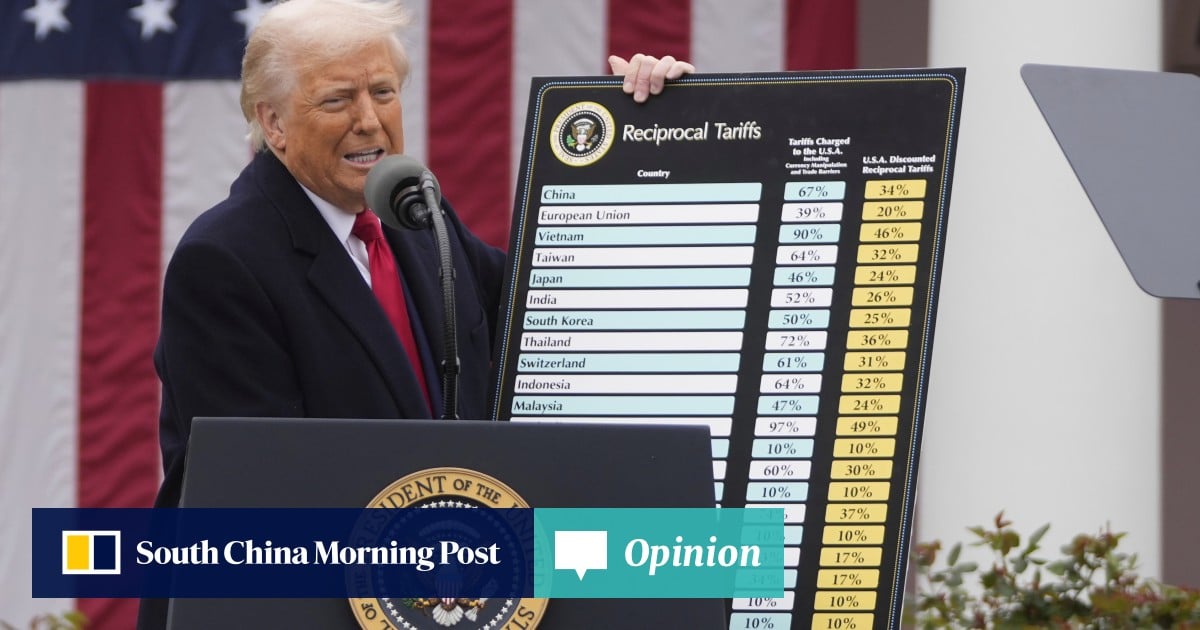Trump’s birthright citizenship gamble is as dumb as it is dangerous
On Thursday, the Supreme Court heard oral arguments over a case that shouldn't exist in the first place—birthright citizenship, which exists in plain text constitutional language, specifically in ...

On Thursday, the Supreme Court heard oral arguments over a case that shouldn't exist in the first place—birthright citizenship, which exists in plain text constitutional language, specifically in its 14th Amendment:
“All persons born or naturalized in the United States, and subject to the jurisdiction thereof, are citizens of the United States and of the State wherein they reside.”
Leaning on this crystal clear language, the Supreme Court in 1898 affirmed that birthright citizenship applied to persons born in the United States to noncitizen parents. In United States v. Wong Kim Ark, the court ruled 6-2 that the U.S. could not bar Wong Kim Ark from entering the country under the Chinese Exclusion Act—the deeply racist law that prohibited all immigration from China and the naturalization of existing Chinese immigrants. Having been born in the U.S., the court ruled that Wong was a citizen and could not be prevented from entering the country.
The dissent was penned by Chief Justice Melville Fuller, who had recently remarked that the Chinese had been excluded from American society "upon the idea that this is a race utterly foreign to us and never will assimilate with us." Fuller argued that the line "subject to the jurisdiction thereof" meant that anyone pledged to a foreign power—the way the Chinese were then pledged to their emperor—could not be "completely subject to the jurisdiction of such other country." (The baby had made no such pledge of allegiance to any foreign power, mind you.)
Related | Supreme Court argument on birthright citizenship shouldn't be happening
Ultimately, the amendment's clear language and contextual history ensconced it safely in both American policy and jurisprudence.
Despite this well-established precedent, it would take an outright xenophobic racist like President Donald Trump, spurred by his lieutenant Stephen Miller, to relitigate this basic bedrock of American citizenship—if you are born here, you are American.
In an uncharacteristically long screed at his Truth Social, Trump didn’t argue that the amendment was wrong, but that it was out of date.
Big case today in the United States Supreme Court. Birthright Citizenship was not meant for people taking vacations to become permanent Citizens of the United States of America, and bringing their families with them, all the time laughing at the “SUCKERS” that we are! The United States of America is the only Country in the World that does this, for what reason, nobody knows — But the drug cartels love it! We are, for the sake of being politically correct, a STUPID Country but, in actuality, this is the exact opposite of being politically correct, and it is yet another point that leads to the dysfunction of America. Birthright Citizenship is about the babies of slaves. As conclusive proof, the Civil War ended in 1865, the Bill went to Congress less than a year later, in 1866, and was passed shortly after that. It had nothing to do with Illegal Immigration for people wanting to SCAM our Country, from all parts of the World, which they have done for many years. It had to do with Civil War results, and the babies of slaves who our politicians felt, correctly, needed protection. Please explain this to the Supreme Court of the United States. Again, remember, the Civil War ended in 1865, and the Bill goes to Congress in 1866 — We didn’t have people pouring into our Country from all over South America, and the rest of the World. It wasn’t even a subject. What we had were the BABIES OF SLAVES. Thank you for your attention to this matter. Good luck with this very important case. GOD BLESS THE U.S.A.!
The easy answer to all of this frothing nonsense is, "if it's a bad amendment, you repeal it." And yes, the amendment repeal process is an arduous one, but that's on purpose. You don't get to do it via executive order, no matter how justified it might be, and in this case, it's certainly not.
It is funny seeing a Republican argue that the Constitution is a living, breathing document that should reflect the changing times. That's the doctrine that gave us Roe v. Wade, and its repudiation by the current reactionary hard-right court is the reason it was overturned.
Several of these justices are not like the other ones when it comes to “strict constructionism.”
Justices like Samuel Alito and Clarence Thomas will pretend to be forever beholden to "strict constructionism," the idea that the Constitution can only be interpreted by the intentions of a bunch of men hundreds of years ago. We’ll soon see if that holds in this case. Consistency hasn’t been their forte.
And Trump is also wrong that the amendment was only intended to apply to the children of slaves. As Justin Fox writes in Bloomberg, in great detail, the amendment’s framers considered language that explicitly limited its application in an original version of the amendment in what was then the Civil Rights Act of 1866: “All persons of African descent born in the United States are hereby declared to be citizens of the United States.”
A day later, they intentionally decided to broaden the language to its current formulation, and then realizing that it might not pass constitutional muster or be rolled back by a future Congress, decided to lock birthright citizenship in an ironclad constitutional amendment.
Trump may think that’s STUPID or a SCAM and that we’re SUCKERS for accepting it, but that’s what the Constitution says, in the most plain of plain language.
That's why—and this is important—the case Thursday before the Supreme Court was not about the merits of the Trump regime's efforts to end birthright citizenship, but over whether lower courts could issue national injunctions. (I highly recommend you read this excellent ScotusBlog recap.) That is, could a judge in Washington enjoin the federal government from eliminating birthright citizenship in the rest of the country?
There is a bit of an ironic twist to that, as you might recall how conservatives used two Texas judges to block much of President Joe Biden's agenda. Among other cases, Judge Mark Pittman blocked Biden's student debt relief and a Consumer Finance Protection Bureau rule capping credit card late fees, while Judge Matthew Kacsmaryk tried to block the abortion pill mifepristone, as well as advance a whole slew of conservative priorities.
Conservative efforts to use the legal system to block liberal progress in a future Democratic administration would suffer a severe blow if Trump was successful here.
He won't be, however. Even conservative judges skeptical of national injunctions didn't particularly seem to care for Trump's gambit in this birthright citizenship case. Unlike legislative or policy questions like student debt relief, constitutional protections are an all-or-nothing proposition. Either everyone has them, or we have suffered a complete breakdown in the rule of law.
Letting Trump's birthright citizenship executive order depend on where and when judges had or had not blocked the order "would allow citizenship to hinge on where someone was born or whether someone crossed state lines," as ScotusBlog paraphrased New Jersey Solicitor General Jeremy Feigenbaum arguing before the court.
Even several of the conservatives on the court understood the absurdity of that proposition.
Some of the liberal justices argued right then and there that they should just rule on the underlying matter and put an end to what they explicitly noted was an absurd case. Justice Elena Kagan flat-out said, of the government's case, "you're dead wrong."
ScotusBlog notes that while only liberals called for the case to be decided on the merits, none of the conservatives bothered to support the Trump administration's contention that Trump's executive order is Constitutional.
So why is Trump's Justice Department pushing this obvious loser of a case? Chaos and confusion are Trump's allies. Even if they lost on the merits at the Supreme Court in 1-2 years, it would give them time to test out novel legal theories at the lower levels. The could see if any judge bites on the notion that "All persons born or naturalized in the United States, and subject to the jurisdiction thereof, are citizens of the United States and of the State wherein they reside" somehow doesn't mean what it quite clearly, in plain English, states.
Campaign Action





















